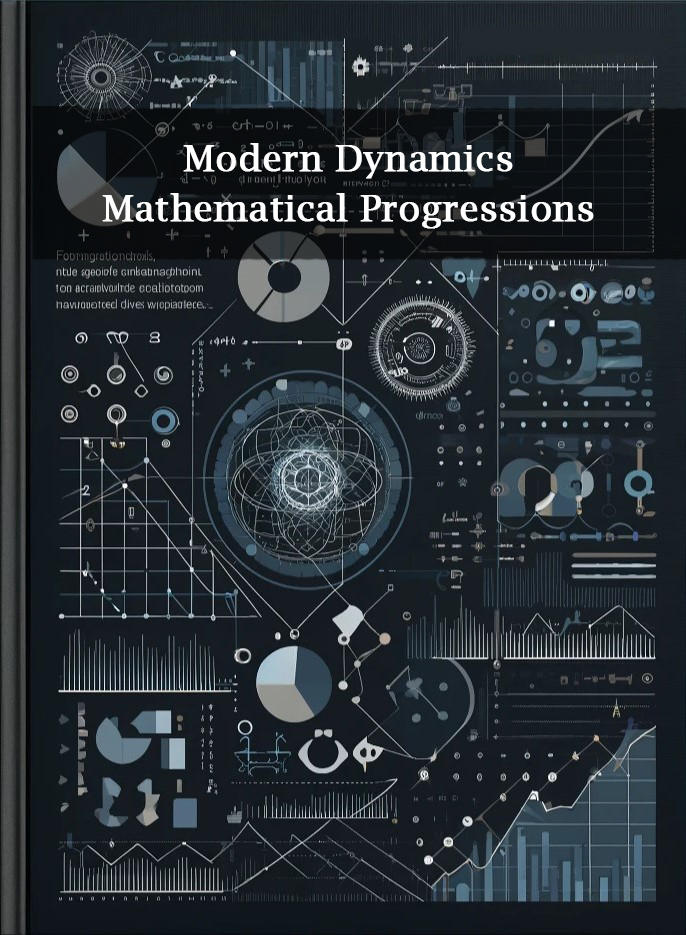Leveraging GenAI for Clinical Data Analysis: Applications and Challenges in Real-Time Patient Monitoring
DOI:
https://doi.org/10.36676/mdmp.v1.i2.21Keywords:
Generative artificial intelligence, analysis of clinical data, monitoring of patients in real-time,, prediction of data, generation of synthetic dataAbstract
Generative artificial intelligence is a term that encompasses a wide range of cutting-edge technologies, including advanced machine learning algorithms and natural language processing models. These technologies have the potential to generate artificial data, predict the outcomes of medical tests, and provide valuable insights derived from vast datasets. Regarding real-time patient monitoring, GenAI has the power to study uninterrupted streams of health data, including vital signs and electronic health records (EHRs), in order to discover patterns, anticipate probable health concerns, and ease decision-making operations. The use of this capability not only makes it possible to detect medical conditions in a timely manner, but it also enhances the personalisation of treatment plans, which ultimately leads to improved outcomes for patients and improves the efficiency with which healthcare is provided.
Among the many applications of GenAI in the realm of real-time monitoring, the contribution it makes to predictive analytics is particularly noteworthy. In order to facilitate quick intervention, the analysis of historical and real-time data using GenAI models enables the prediction of patient deterioration or sickness development, which in turn makes it possible to perform the forecast. To be more specific, GenAI has the capability to predict unfavourable outcomes and suggest preventive measures in the treatment of chronic diseases such as diabetes or heart failure. As a result, patients are able to spend less time in the hospital and experience an improvement in their quality of life.
References
Goodfellow, I., Pouget-Abadie, J., Mirza, M., Xu, B., Warde-Farley, D., Ozair, S., . . . & Bengio, Y. (2014). Generative adversarial nets. Proceedings of the 27th International Conference on Neural Information Processing Systems (NIPS), 2672–2680. https://doi.org/10.5555/2969033.2969125
Bansal, A., Jain, A., & Bharadwaj, S. (2024, February). An Exploration of Gait Datasets and Their Implications. In 2024 IEEE International Students' Conference on Electrical, Electronics and Computer Science (SCEECS) (pp. 1-6). IEEE. DOI: https://doi.org/10.1109/SCEECS61402.2024.10482347
Kumari, S., Rajput, K., Singh, G., Jain, A., Sachi, S., & Manwal, M. (2024, May). HDL Environment for the Synthesis of 2-Dimensional and 3-Dimensional Network on Chip Mesh Router Architecture. In 2024 International Conference on Communication, Computer Sciences and Engineering (IC3SE) (pp. 55-60). IEEE.Mani, DOI: https://doi.org/10.1109/IC3SE62002.2024.10593654
C., Aeron, A., Rajput, K., Kumar, S., Jain, A., & Manwal, M. (2024, May). Q-Learning-Based Approach to Detect Tumor in Human–Brain. In 2024 International Conference on Communication, Computer Sciences and Engineering (IC3SE) (pp. 1-5). IEEE. DOI: https://doi.org/10.1109/IC3SE62002.2024.10592886
Kingma, D. P., & Welling, M. (2014). Auto-Encoding Variational Bayes. Proceedings of the 2nd International Conference on Learning Representations (ICLR). https://arxiv.org/abs/1312.6114
Vaswani, A., Shazeer, N., Parmar, N., Uszkoreit, J., Jones, L., Gomez, A. N., Kaiser, Ł., Polosukhin, I. (2017). Attention is all you need. Proceedings of the 31st International Conference on Neural Information Processing Systems (NeurIPS), 5998–6008. https://doi.org/10.5555/3295222.3295349
Kumar, S., Jain, A., Rani, S., Ghai, D., Achampeta, S., & Raja, P. (2021, December). Enhanced SBIR based Re-Ranking and Relevance Feedback. In 2021 10th International Conference on System Modeling & Advancement in Research Trends (SMART) (pp. 7-12). IEEE. DOI: https://doi.org/10.1109/SMART52563.2021.9676245
Jain, A., Singh, J., Kumar, S., Florin-Emilian, Ț., Traian Candin, M., & Chithaluru, P. (2022). Improved recurrent neural network schema for validating digital signatures in VANET. Mathematics, 10(20), 3895. DOI: https://doi.org/10.3390/math10203895
Kumar, S., Haq, M. A., Jain, A., Jason, C. A., Moparthi, N. R., Mittal, N., & Alzamil, Z. S. (2023). Multilayer Neural Network Based Speech Emotion Recognition for Smart Assistance. Computers, Materials & Continua, 75(1). DOI: https://doi.org/10.32604/cmc.2023.028631
Misra, N. R., Kumar, S., & Jain, A. (2021, February). A review on E-waste: Fostering the need for green electronics. In 2021 international conference on computing, communication, and intelligent systems (ICCCIS) (pp. 1032-1036). IEEE. DOI: https://doi.org/10.1109/ICCCIS51004.2021.9397191
Kumar, S., Shailu, A., Jain, A., & Moparthi, N. R. (2022). Enhanced method of object tracing using extended Kalman filter via binary search algorithm. Journal of Information Technology Management, 14(Special Issue: Security and Resource Management challenges for Internet of Things), 180-199.
Harshitha, G., Kumar, S., Rani, S., & Jain, A. (2021, November). Cotton disease detection based on deep learning techniques. In 4th Smart Cities Symposium (SCS 2021) (Vol. 2021, pp. 496-501). IET. DOI: https://doi.org/10.1049/icp.2022.0393
Jain, A., Dwivedi, R., Kumar, A., & Sharma, S. (2017). Scalable design and synthesis of 3D mesh network on chip. In Proceeding of International Conference on Intelligent Communication, Control and Devices: ICICCD 2016 (pp. 661-666). Springer Singapore. DOI: https://doi.org/10.1007/978-981-10-1708-7_75
Kumar, A., & Jain, A. (2021). Image smog restoration using oblique gradient profile prior and energy minimization. Frontiers of Computer Science, 15(6), 156706. DOI: https://doi.org/10.1007/s11704-020-9305-8
Jain, A., Bhola, A., Upadhyay, S., Singh, A., Kumar, D., & Jain, A. (2022, December). Secure and Smart Trolley Shopping System based on IoT Module. In 2022 5th International Conference on Contemporary Computing and Informatics (IC3I) (pp. 2243-2247). IEEE. DOI: https://doi.org/10.1109/IC3I56241.2022.10073159
Pandya, D., Pathak, R., Kumar, V., Jain, A., Jain, A., & Mursleen, M. (2023, May). Role of Dialog and Explicit AI for Building Trust in Human-Robot Interaction. In 2023 International Conference on Disruptive Technologies (ICDT) (pp. 745-749). IEEE. DOI: https://doi.org/10.1109/ICDT57929.2023.10150652
Rao, K. B., Bhardwaj, Y., Rao, G. E., Gurrala, J., Jain, A., & Gupta, K. (2023, December). Early Lung Cancer Prediction by AI-Inspired Algorithm. In 2023 10th IEEE Uttar Pradesh Section International Conference on Electrical, Electronics and Computer Engineering (UPCON) (Vol. 10, pp. 1466-1469). IEEE. DOI: https://doi.org/10.1109/UPCON59197.2023.10434702
Radwal, B. R., Sachi, S., Kumar, S., Jain, A., & Kumar, S. (2023, December). AI-Inspired Algorithms for the Diagnosis of Diseases in Cotton Plant. In 2023 10th IEEE Uttar Pradesh Section International Conference on Electrical, Electronics and Computer Engineering (UPCON) (Vol. 10, pp. 1-5). IEEE. DOI: https://doi.org/10.1109/UPCON59197.2023.10434445
Downloads
Published
How to Cite
Issue
Section
License
Copyright (c) 2024 Modern Dynamics: Mathematical Progressions

This work is licensed under a Creative Commons Attribution-NonCommercial 4.0 International License.
This license requires that re-users give credit to the creator. It allows re-users to distribute, remix, adapt, and build upon the material in any medium or format, for noncommercial purposes only.




